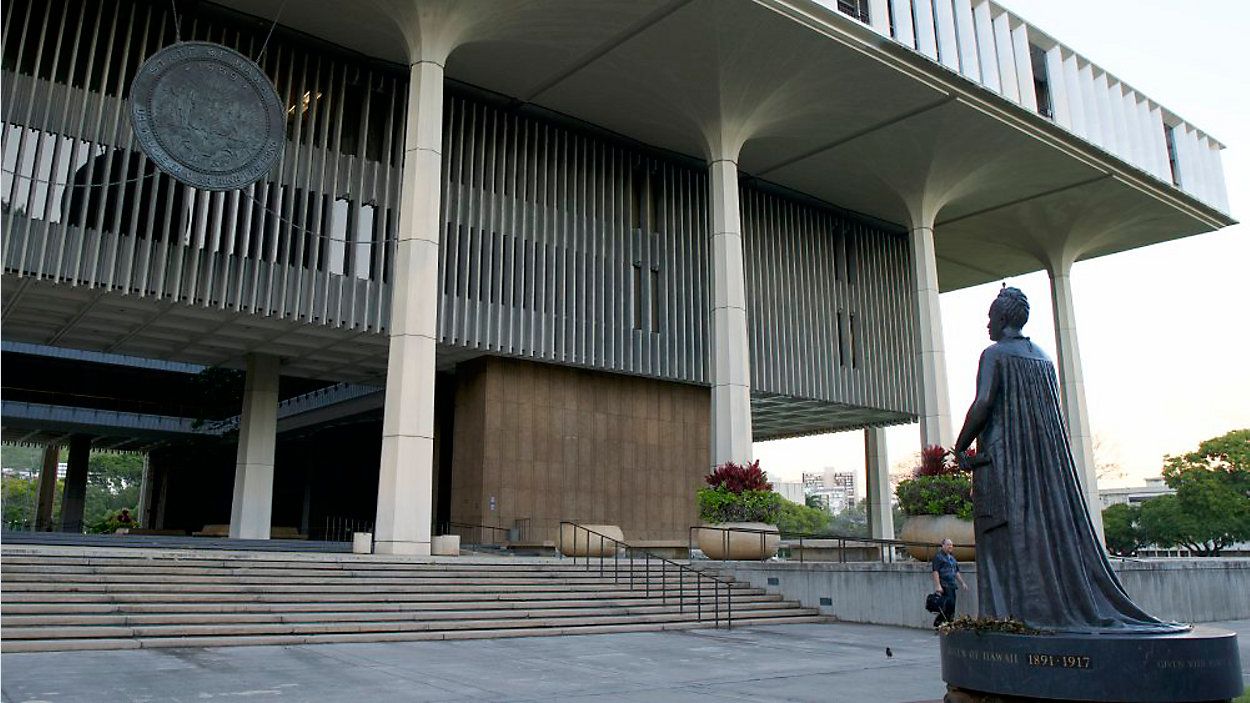Effective at the stroke of midnight on Wednesday, registered nurses from out of state can be issued temporary permits to work in Hawaii, pharmacists will be authorized to administer vaccines to anyone over the age of 3, the definition of beer will expand to include alcoholic seltzers and other fermented brews and kalo will assume its new position as the official state plant.
These are among a slate of new state laws that will take effect on Jan. 1.
Act 95 (2023) provides the state a key mechanism for addressing the state’s ongoing nursing shortage. The law allows the Board of Nursing to issue temporary permits to out-of-state licensed registered nurses and practical nurses and nurses who hold a multi-state license issued by another state, territory, or country, under certain circumstances. Beginning July 1, 2025, out-of-state licensed practical nurses or registered nurses can apply for a temporary permit simultaneously with an application for a license to practice in the state.
Act 104 (2024), passed earlier this year, allows pharmacists to order and administer vaccines to patients age 3 and older. It also authorizes pharmacy interns and technicians to administer vaccines under the supervision of a pharmacist if certain requirements are met.
Among other new laws relating to health care, Act 91 (2024) allows minors who are at least 14 years old to consent to medical care and services for sexually transmitted infections, pregnancy and family planning services, including the prevention of sexually transmitted infections. Health care providers and insurers are required to abide by confidentiality policies and practices.
Act 112 (2023) adopts the Interstate Medical Licensure Compact to create a comprehensive process, implemented by the Department of Commerce and Consumer Affairs, that complements the existing licensing and regulatory authority of state medical boards and provides a streamlined process that allows physicians to become licensed in multiple states.
Two new laws address reporting requirements for legislators and lobbyists.
Act 8 (2023) requires that statements of expenditures filed by lobbyists and other persons who engage in lobbying activities include certain information on the identity of the legislative or administrative action that was commented on, supported by, or opposed by the person filing the statement during the statement period.
Meanwhile, Act 12 (2023) requires legislators to include within their disclosures of financial interests the names of certain lobbyists with whom the legislator has a relationship.
Both were introduced as part of the 2023 State Ethics Commission legislative package.
To further encourage transparency and positive participation in government, Act 12 (2024) requires public meeting notices to inform members of the public how to provide remote oral testimony in a manner that allows the testifier, upon request, to be visible to board members and other meeting participants. It also recognizes a board’s authority to remove and block individuals who disrupt meetings.
Act 9 (2024) expands the definition of “beer” under the intoxicating liquor law to mean any alcoholic beverage containing not less than 0.5% alcohol by volume produced by fermentation of any infusion or decoction of malt or any substitute. This includes alcohol seltzer beverages but excludes sake, cooler beverages and other distilled products. The new law further authorizes brewpubs to sell beer they manufacture, or beer manufactured on their premises, subject to certain conditions.
While most of the soon-to-be effective laws were enacted within the last two years, one dates back to 2007. Act 36 formally adopts, establishes and designates kalo (taro) as the official state plant.
In response to the 2022 district court ruling in Hawaii Legal Short-Term Rental Alliance v. City and County of Honolulu that permanently blocked the city from enforcing the ordinance prohibiting 30- to 89-day home rentals, the Legislature moved to “support home rule authority statutorily provided to the counties relating to zoning to ensure that the counties are able to guide the overall future development of their local jurisdictions in a manner they deem fit, using the tools available to the counties to put their general plans into effect in an orderly manner.”
The resulting Act 17 (2024) clarifies the counties’ authority to regulate the time, place, manner and duration in which uses of land and structures may take place. It further clarifies that uses that include the provision of transient accommodations are not considered residential uses and may be phased out or amortized by the counties. It also expands the scope of the transient accommodations tax law to include certain shelters and vehicles with sleeping accommodations.
Among other new laws taking effect this week, Act 252 (2024) establishes judicial procedures to prevent and remedy abusive litigation; Act 169 (2024) requires productions to provide evidence of reasonable efforts to comply with all applicable requirements to qualify for the Motion Picture, Digital Media, and Film Production Income Tax Credit.
Michael Tsai covers local and state politics for Spectrum News Hawaii. He can be reached at michael.tsai@charter.com.



